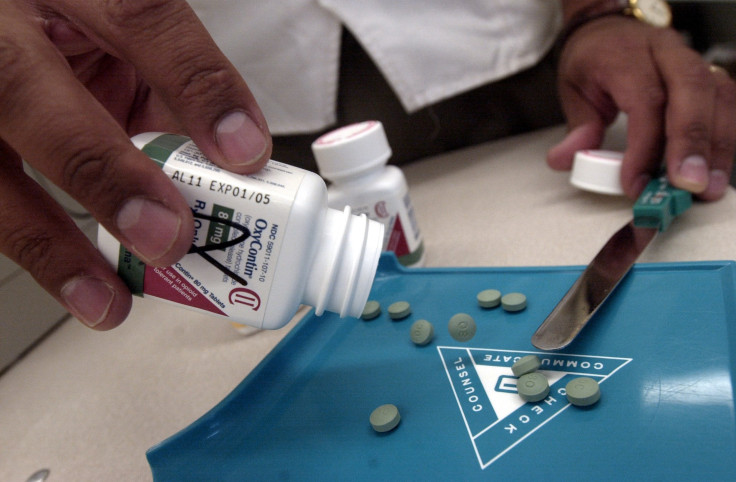OxyContin Manufacturer Purdue Pharma Sued By New Hampshire As Drug-Related Deaths Increase

The state of New Hampshire has sued Purdue Pharma — the company which manufactures opioid-based painkiller OxyContin — for false marketing of their product that deliberately undermined the dangers of addiction posed by the drug.
In a lawsuit filed Tuesday with Merrimack County Superior Court, the state accused the drug-maker of spending millions of dollars since 1990s on deceptive advertisement for OxyContin that exaggerated the benefits of the product.
The company made people believe the drug could cure chronic pain, hence getting them easily addicted to it through long-term use, the lawsuit stated.
"What they didn't tell people was that if you're a chronic pain long-term user, your addiction risk is substantial, and if people knew that and if doctors had known that, they would've prescribed them in very different ways," Senior Assistant Attorney General James Boffetti said, WMUR reported.
Trending: Video Shows Malia Obama Being Carted Out Of Lollapalooza In Chicago
The manufacturer has been accused of violating Consumer Protection Act, Medicaid Fraud Act and other state laws in the lawsuit.
Purdue and similar other opioid-based drug-makers have previously faced similar allegations from states such as Oklahoma, Mississippi, Ohio, Missouri, California, Illinois, Ohio, Oregon, Tennessee and New York.
New Hampshire is just the latest in the list of states to sue Purdue after the attorney general's office started investigating Purdue Pharma from September 2015.
“We talked to a lot of prescribers. We looked at data from Medicaid and from the private health insurance markets," Boffetti said.
In 2007, Purdue and three of its executives agreed to pay $634.5 million to resolve a Department of Justice probe into the misbranding of OxyContin. The company had also funded a “pain-management educational program” which facilitated “its access to hospitals to promote OxyContin,” a report issued by the Government Accountability Office states. This resulted in a spike in both its profits as well as the number of drug abusers and Purdue was forced to reformulate its product in 2010 to make it difficult to snort or inject.
Ever since then, Purdue has continued to expand its user base and enjoy the fruits of its initial misconduct, stated the lawsuit.
“New Hampshire continues to experience a severe opioid epidemic,” Attorney General Ann Rice said in a statement, Reuters reported. “Last year alone, nearly 500 overdose deaths occurred—almost 10 times more than in 2000. In 2016, the deputy administrator of the DEA called New Hampshire 'ground zero’ of the opioid epidemic.”
Popular Now: Phillip Spector Facts: Music Legend's New Prison Mugshot Released
New Hampshire is not alone in this regard. According to a federal report, there has been a steady rise in deaths due to drug overdose in the last year few years. While 16.7 cases per 100,000 in 2015 ended in death of the addict, the rate increased to 19.9 cases last year, according to a August 2017 mortality report by the U.S. National Center for Health Statistics.
Also, 52,404 people died from overdose in 2015, which is an alarming 75 percent increase from the 29,813 overdose deaths in 2005, the NCHS reported.
© Copyright IBTimes 2024. All rights reserved.












